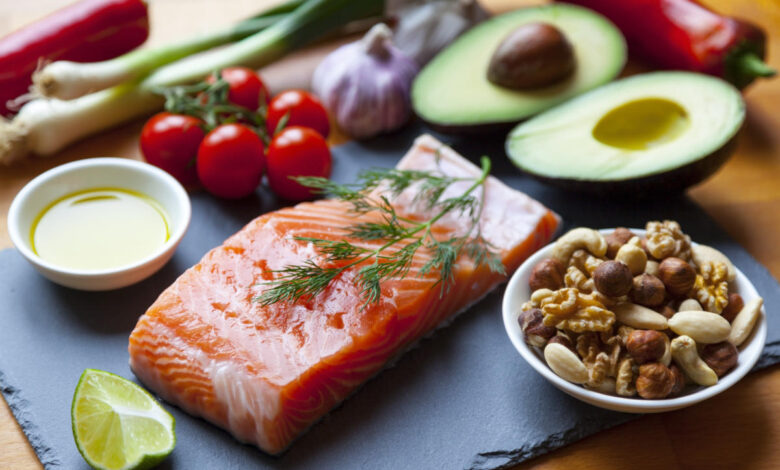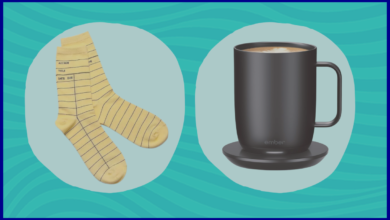Eating a Mediterranean diet may combat acne, study finds

The Mediterranean diet is well known for benefits like its heart-protective effects and ability to help keep blood sugar and cholesterol levels under control. But eating the antioxidant-rich diet may help clear up acne-ridden skin, too, according to research recently published in the Journal of Cosmetic Dermatology. That’s because the hero ingredients of a Mediterranean meal may help decrease inflammation, treating one of the causes of acne flare-ups, for which effective treatments are lacking. The findings demonstrate yet another way that we are what we eat, as the saying goes, and that enjoying a Mediterranean diet may help keep pimples at bay and improve overall skin appearance.
What did the new study find?
The researchers recruited 60 tweens, teens and young adults with acne. They started by assessing how severe each person’s skin problems were, their “facial sebum levels” — how much of an oily, fat-based substance they had — what their diets were like, their omega-3 levels and how the participants rated their quality of life. Nearly 99% of the study subjects had deficits of omega-3 acids, which are found in foods like salmon and avocado.
For 16 weeks, all of the participants were prescribed a Mediterranean diet plus a supplement made from omega-3-rich algae (yes, certain algaes and seaweeds are edible and even nutritious). By the end of the study, 85% of people only had mild acne and many had visibly clearer skin with fewer pimples; the majority (62%) had healthy omega-3 levels; and subjects also rated their quality of life significantly better at the end of the study compared to the start.
The study’s authors acknowledged that prescription medications are necessary to treat severe acne to prevent scarring and improve quality of life, but “the potential of lifestyle interventions should not be neglected.”
How does the Mediterranean diet help acne?
It’s not just that the Mediterranean diet is good for skin, it’s that how you eat influences your complexion, experts say. “I see a strong connection between diet and skin health,” Dr. Hannah Kopelman, a dermatologist and host of the podcast “Derm Club,” tells Yahoo Life.
Previous research has shown links between certain foods that have a high-glycemic index (meaning they can make your blood sugar spike quickly) and acne, according to the American Academy of Dermatology. These foods tend to be ultra-processed or sugary snacks, including soda or other soft drinks, potato chips, fries and white bread. As the AAD explains, greasy foods don’t lead to acne, greasy foods tend to send blood sugar up.
A low-glycemic diet, in contrast, seems to help keep acne at bay, according to the AAD, because those blood sugar spikes lead to inflammation and increases in sebum production which, in turn, can contribute to painful pimples by clogging pores.
And the Mediterranean diet fits the bill, Dr. Jeffrey Fromowitz, who practices at Dermatology of Boca in Florida, tells Yahoo Life. “The Mediterranean diet is rich in vitamins, nutrients, antioxidants and low-glycemic-index foods,” he says. “These factors improve skin health, reduce skin inflammation and may even help balance the gut microbiome, leading to clearer, healthier skin.
Omega-3 fatty acids, in particular, play an important role in this connection, says Fromowitz. They are “essential nutrients that can improve skin hydration, regulate oil production, and even diminish acne breakouts,” he explains. “They work by balancing the fatty acid composition of the lipids produced in your skin. The result is softer, hydrated skin and less inflammation.”
What Mediterranean-style foods to eat to fight acne
“For optimal skin health, focus on antioxidant-rich foods like berries and leafy greens, stay hydrated and limit processed foods and sugars,” says Kopelman. All of these are included in a Mediterranean diet, to which Yahoo Life writer and dietitian Maxine Yeung offers a great, simple, distilled how-to guide:
Eat at every meal:
-
Fruits
-
Vegetables
-
Whole grains
-
Extra virgin olive oil
Eat at least 3 servings a week:
Eat no more than 1 serving a day:
Limit to 1 serving per week:
The 60 study participants discovered they had fewer outbreaks when eating these ingredients in addition to soy and probiotics (found in yogurt and fermented foods). Many found that their acne worsened when they ate more refined sugar, saturated fats, soda, dairy, sweets and when they drank more alcohol. Fromowitz suggests that the best foods for boosting skin health include fatty fish, avocadoes, sunflower seeds, walnuts, colorful peppers, sweet potatoes, broccoli, tomatoes, dark chocolate, green tea and red grapes.




